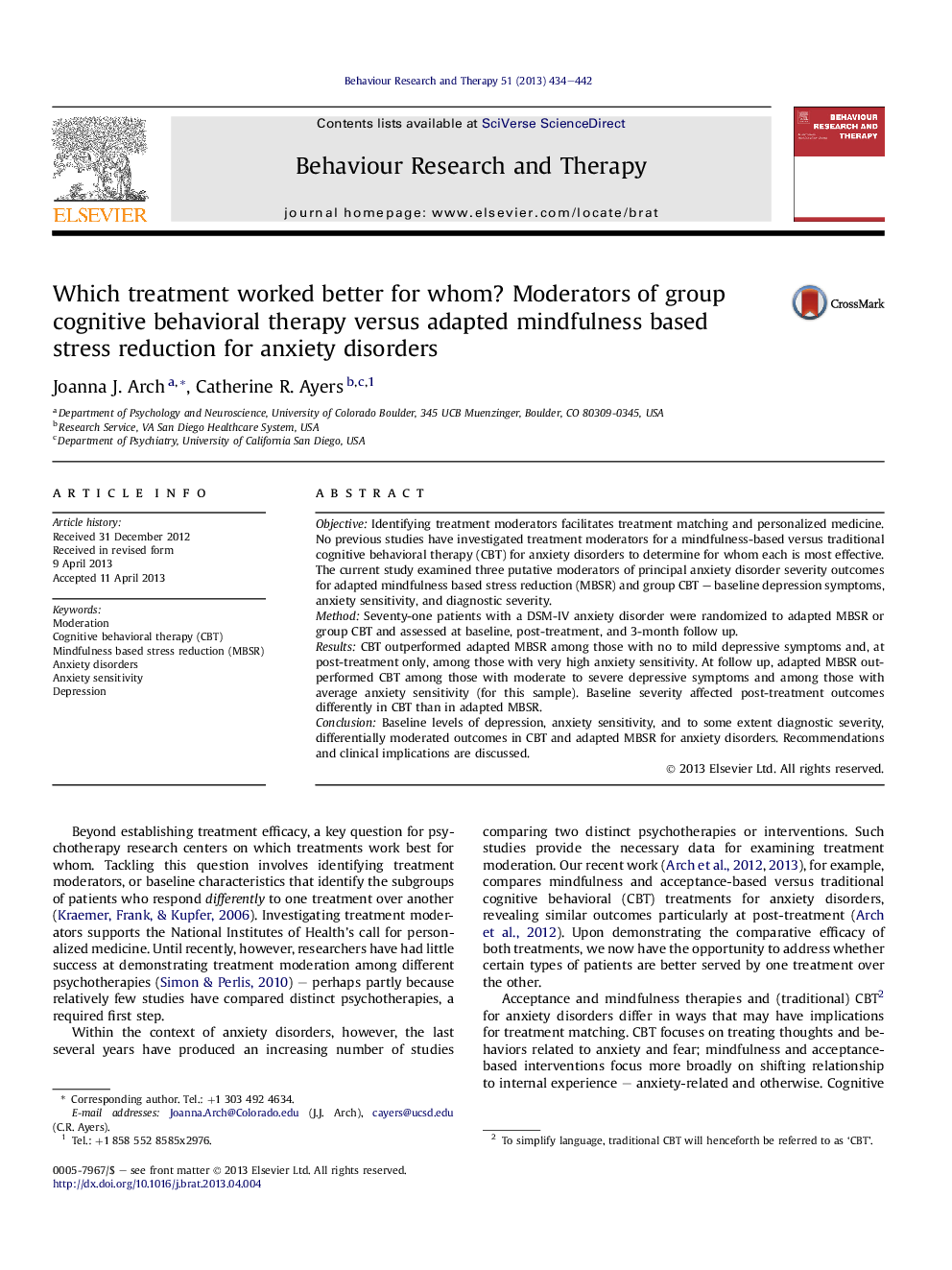| Article ID | Journal | Published Year | Pages | File Type |
|---|---|---|---|---|
| 901924 | Behaviour Research and Therapy | 2013 | 9 Pages |
•We compared clinical moderators in CBT versus adapted MBSR for anxiety disorders.•Group CBT was superior for those with no to mild depression symptoms.•MBSR was superior at follow-up for those with moderate to severe depression symptoms.•Group CBT outperformed MBSR at Post for those with very high anxiety sensitivity.•High diagnostic severity more negatively affected Post outcomes in CBT than MBSR.
ObjectiveIdentifying treatment moderators facilitates treatment matching and personalized medicine. No previous studies have investigated treatment moderators for a mindfulness-based versus traditional cognitive behavioral therapy (CBT) for anxiety disorders to determine for whom each is most effective. The current study examined three putative moderators of principal anxiety disorder severity outcomes for adapted mindfulness based stress reduction (MBSR) and group CBT – baseline depression symptoms, anxiety sensitivity, and diagnostic severity.MethodSeventy-one patients with a DSM-IV anxiety disorder were randomized to adapted MBSR or group CBT and assessed at baseline, post-treatment, and 3-month follow up.ResultsCBT outperformed adapted MBSR among those with no to mild depressive symptoms and, at post-treatment only, among those with very high anxiety sensitivity. At follow up, adapted MBSR outperformed CBT among those with moderate to severe depressive symptoms and among those with average anxiety sensitivity (for this sample). Baseline severity affected post-treatment outcomes differently in CBT than in adapted MBSR.ConclusionBaseline levels of depression, anxiety sensitivity, and to some extent diagnostic severity, differentially moderated outcomes in CBT and adapted MBSR for anxiety disorders. Recommendations and clinical implications are discussed.
